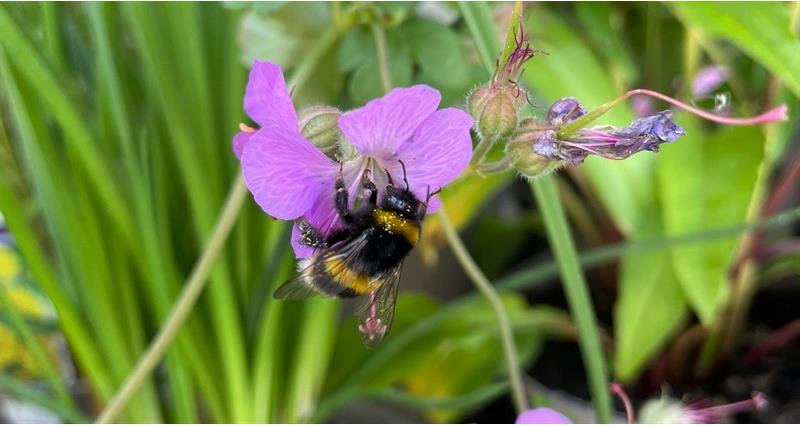The NPS was first published in November 2014 where it set out a 10-year plan to assess and address pollinator decline.
Stakeholder organisations from across industry, academia, conservation, agriculture and the public were invited to commit to a statement of collective action, agreeing to support the strategy’s goal of expanding food, shelter and nesting sites across the landscape.
Key areas of action
This over-arching goal was broken down further into five key areas of action:
- Supporting pollinators on farmland.
- Supporting pollinators across towns, cities and the countryside.
- Enhancing the response to pest and disease risks.
- Raising awareness of what pollinators need to survive and thrive.
- Improving evidence on the status of pollinators and the service they provide.
"»ĘĽŇ»ŞČËhas been involved with the National Pollinator Strategy since its inception and the strength of the strategy has always been how it has followed the science and evidence."
Dr Chris Hartfield, NFU Senior Regulatory Affairs Adviser
Goals of the NPS
The PASG's (Pollinator Advisory Steering Group) 2020/21 review of the strategy clarified the final goals of the NPS to include:
- 'More, bigger, better, joined-up, diverse and high-quality flower rich habitats' to support pollinators.
- Healthy populations of wild pollinators and managed bees.
- The prevention of further extinctions of known threatened pollinator species.
- Growth of public and business knowledge of the essential needs of pollinators.
- Evidence of actions taken by stakeholders 'to support pollinators and pollination services'.
Building evidence
The NPS has been instrumental in building up the evidence base concerning UK pollinator populations, providing current assessments of their status, changes and responses to management of UK pollinators.
The PoMS (UK Pollinator Monitoring Scheme) has been central to this. PoMS includes the use of data submitted by members of the public to measure trends in pollinator populations.
The NPS’s conservation efforts have been aided by the work of the National Bee Unit and its Healthy Bees Plan which has helped further understanding of the pest and disease risk in honeybees and allowed effective advice to be supplied to beekeepers in managing these risks.
The NFU's commitmentÂ
As a member of the PASG, we have committed to pursuing several actions in the final period of the NPS from 2021 to 2024:
- Encourage registration of honeybee colonies on BeeBase and support recording commercial bumblebee use with the aim of producing a reliable data source.
- Keep ongoing research on IPM under active review and continue to update guidance on IPM and the safe use of pesticides.
- Advise on the design of new environmental land management schemes so that they help to meet objectives for pollinators and pollination services.
- Support management for pollinators and pollination services through workshops, advice provision and online resources.
- Review and update current information on IPM and ensure its effective distribution to farmers and growers.
NFU policy-making
The Action Plan outlines how pollinators will inform our policymaking across agriculture and will inform crucial discussion around the development of new environmental land management schemes, IPM and farm business management.
The NFU's Senior Regulatory Affairs Adviser Dr Chris Hartfield said: "»ĘĽŇ»ŞČËhas been involved with the National Pollinator Strategy since its inception and the strength of the strategy has always been how it has followed the science and evidence, and as part of this approach has established the world-leading pollinator monitoring scheme PoMS.
"We look forward to continuing to help steer the work under the new Pollinator Action Plan."
